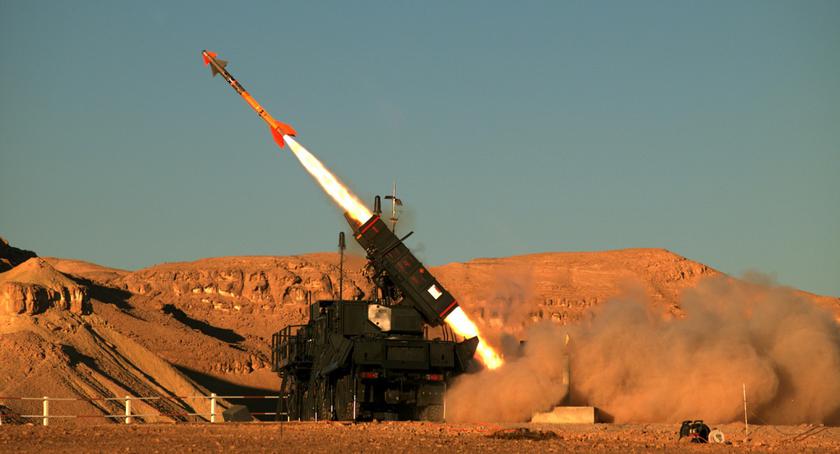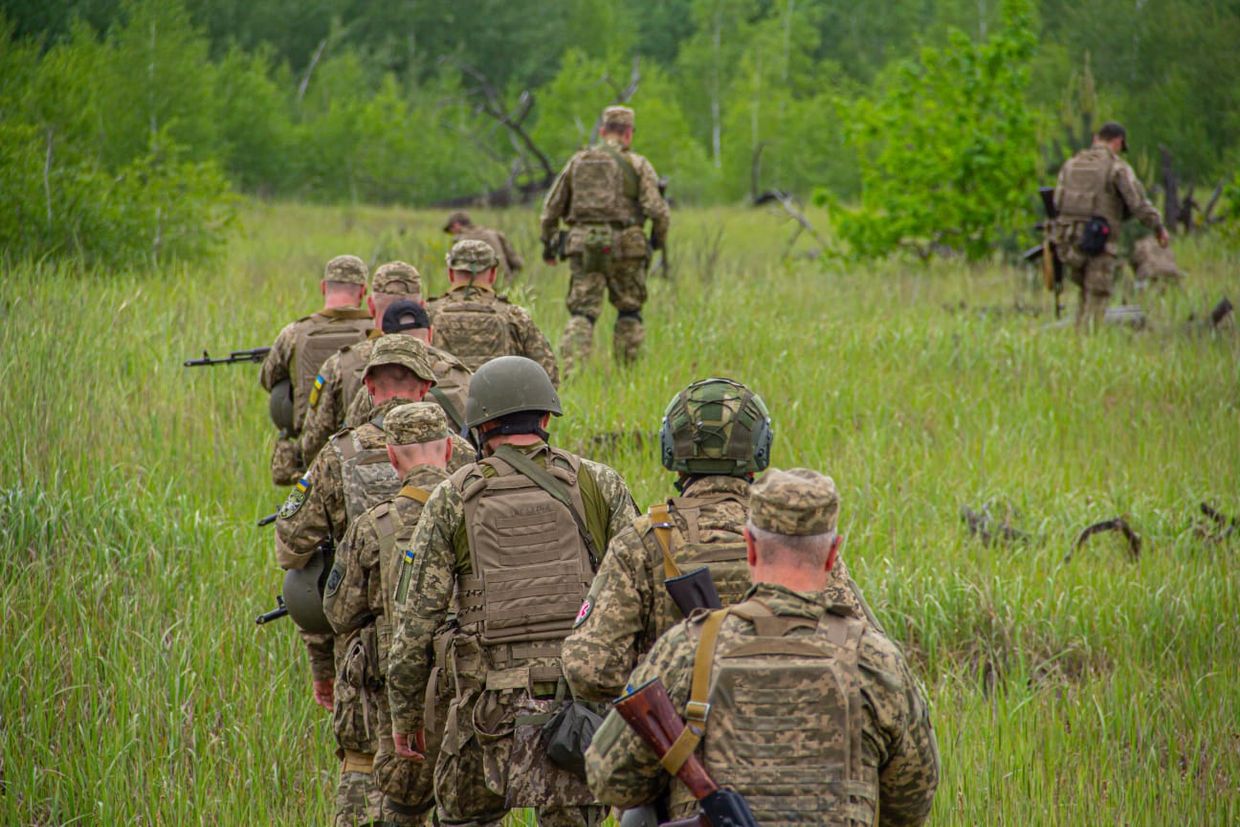Part 2:
The United States placed a round of sanctions on Russia, among others, in 2017, raising the possibility of penalties for countries that do business with Russian military or intelligence bodies. After Russia invaded Ukraine last year, the United States also excluded Russian banks from global payment systems that Vietnam had used to buy military equipment.
“If Vietnam continues to buy weapons from Russia, our international prestige will be harmed,” said Nguyen The Phuong, a defense analyst who has lectured at the University of Economics and Finance in Ho Chi Minh City, Vietnam. “Importing weapons from Russia will have a negative effect on Vietnam’s future economic growth because the United States and our European partners are the main stream for our exports. It’s not worth it.”
Nevertheless, Vietnam’s military remains deeply tied to Russia — and changing that could take years, if not decades. Historical allegiance is strong. During what the Vietnamese call the American War, Soviet missiles helped Vietnamese Communist forces battle the Americans. Generations of Vietnam’s top brass trained in the Soviet Union and later Russia.
There are practical considerations. Vietnamese fighter jet and submarine control boards are in Cyrillic. Switching would take time and money, neither of which Vietnam has in abundance. It needs newer fighter jets after a string of crashes within its fleet of aging Russian combat aircraft.
A tank fires, creating a bright cloud of smoke and flame.
A tank operated by a Vietnamese crew taking part in the International Army Games 2022 in Alabino, outside Moscow. Vietnam’s military remains deeply tied to Russia.Maxim Shemetov/Reuters
Another reason for keeping open the Russian arms pipeline: buying Western weapons would require more transparency than dealing with the Russians.
“Every contract with Russia goes with money under the table or something under the table,” said Carlyle A. Thayer, an emeritus professor at the University of New South Wales Canberra and an expert on the Vietnamese military. “Are Vietnamese generals going to want to give that up?”
Hard-line members of Vietnam’s leadership now have the upper hand as Mr. Trong tightens his grip. They remain distrustful of the United States, regardless of the welcome for Mr. Biden. There is fear that the United States might try to foment a democratic revolution in Vietnam or, at the very least, attach human rights conditions to future arms purchases, said Zachary Abuza, a professor at the National War College in Washington and author of an upcoming book about the Vietnamese military.
“A deal with Russia makes every sense in the world,” he said. “Everyone wants to talk about this burgeoning defense relationship with the United States, but it ain’t going to happen because the Vietnamese military is very pro-Russian.”
A Balancing Act
The Vietnamese military has vanquished powerful enemies. It chased out the imperial French and the Americans. In 1979, Vietnamese forces clashed with the People’s Liberation Army, whose brief invasion evoked China’s colonial domination of Vietnam for a millennium.
Yet Hanoi has also depended on a flexible “bamboo diplomacy” to preserve relations in a difficult neighborhood, said Alexander Vuving, a professor at the Daniel K. Inouye Asia-Pacific Center for Security Studies in Honolulu. For every measure of friendship with one superpower, Vietnam tends to extend a handshake to another. Vietnam watchers expect that Xi Jinping of China and perhaps even Vladimir V. Putin of Russia will visit Vietnam this year, on the heels of Mr. Biden’s stop in Hanoi.
“Now that the Vietnamese are raising their ties with the United States, they also need to show China and Russia that they are not abandoning them,” Mr. Vuving said. “It’s a very delicate balance they have to maintain.”
Secretly tying the Vietnamese military to an arms supplier that is having trouble supplying itself might not seem like the most deft strategy. Some younger Vietnamese officials and others associated with the government say they do not support a new arms deal with Russia. But the military is the most conservative of national institutions, and its foremost priority is to protect the Communist Party, not the state.
A view of a large city at dusk with many high-rises and cranes on the horizon.
The skyline of Ho Chi Minh City. Vietnam and the United States have dawn closer over mutual suspicion of China’s intentions. But U.S. sanctions on Russia have not changed the fact of Vietnam’s military ties with the Kremlin.Justin Mott for The New York Times
In the Ministry of Finance’s laying out of Vietnam’s arms dilemma, the document noted that although the United States could impose sanctions on Vietnam for buying Russian weapons, Washington was unlikely to do so because of Hanoi’s value to Washington as a partner in its Indo-Pacific Strategy, a blueprint to contain China.
Vietnam may well have recognized the complex calculus of great powers. In April, Daniel J. Kritenbrink, the assistant secretary of state for East Asian and Pacific affairs, told reporters that it would be in Vietnam’s interests to conform to U.S. law, including sanctions, and to diversify military spending away from Russia.
But Mr. Kritenbrink reserved criticism of Hanoi, and he did not elaborate on whether sanctions might be imposed.
“I’ll leave to Vietnam and my friends in Hanoi to comment on their own views and their own position, but certainly we’ve made very clear what our position is on that matter,” he said, adding that “Vietnam is one of our most important partners in the region, and I’m very optimistic about our future.”
“The United States will not want to alienate Vietnam at a time when they want to build partnerships and alliances in this region to counter the rise of China,” said Le Hong Hiep, a senior fellow at the ISEAS-Yusof Ishak Institute and a former Vietnamese foreign ministry official. “Both sides are practicing the art of strategic patience.”
Edward Wong contributed reporting.
The United States placed a round of sanctions on Russia, among others, in 2017, raising the possibility of penalties for countries that do business with Russian military or intelligence bodies. After Russia invaded Ukraine last year, the United States also excluded Russian banks from global payment systems that Vietnam had used to buy military equipment.
“If Vietnam continues to buy weapons from Russia, our international prestige will be harmed,” said Nguyen The Phuong, a defense analyst who has lectured at the University of Economics and Finance in Ho Chi Minh City, Vietnam. “Importing weapons from Russia will have a negative effect on Vietnam’s future economic growth because the United States and our European partners are the main stream for our exports. It’s not worth it.”
Nevertheless, Vietnam’s military remains deeply tied to Russia — and changing that could take years, if not decades. Historical allegiance is strong. During what the Vietnamese call the American War, Soviet missiles helped Vietnamese Communist forces battle the Americans. Generations of Vietnam’s top brass trained in the Soviet Union and later Russia.
There are practical considerations. Vietnamese fighter jet and submarine control boards are in Cyrillic. Switching would take time and money, neither of which Vietnam has in abundance. It needs newer fighter jets after a string of crashes within its fleet of aging Russian combat aircraft.
A tank fires, creating a bright cloud of smoke and flame.
A tank operated by a Vietnamese crew taking part in the International Army Games 2022 in Alabino, outside Moscow. Vietnam’s military remains deeply tied to Russia.Maxim Shemetov/Reuters
Another reason for keeping open the Russian arms pipeline: buying Western weapons would require more transparency than dealing with the Russians.
“Every contract with Russia goes with money under the table or something under the table,” said Carlyle A. Thayer, an emeritus professor at the University of New South Wales Canberra and an expert on the Vietnamese military. “Are Vietnamese generals going to want to give that up?”
Hard-line members of Vietnam’s leadership now have the upper hand as Mr. Trong tightens his grip. They remain distrustful of the United States, regardless of the welcome for Mr. Biden. There is fear that the United States might try to foment a democratic revolution in Vietnam or, at the very least, attach human rights conditions to future arms purchases, said Zachary Abuza, a professor at the National War College in Washington and author of an upcoming book about the Vietnamese military.
“A deal with Russia makes every sense in the world,” he said. “Everyone wants to talk about this burgeoning defense relationship with the United States, but it ain’t going to happen because the Vietnamese military is very pro-Russian.”
A Balancing Act
The Vietnamese military has vanquished powerful enemies. It chased out the imperial French and the Americans. In 1979, Vietnamese forces clashed with the People’s Liberation Army, whose brief invasion evoked China’s colonial domination of Vietnam for a millennium.
Yet Hanoi has also depended on a flexible “bamboo diplomacy” to preserve relations in a difficult neighborhood, said Alexander Vuving, a professor at the Daniel K. Inouye Asia-Pacific Center for Security Studies in Honolulu. For every measure of friendship with one superpower, Vietnam tends to extend a handshake to another. Vietnam watchers expect that Xi Jinping of China and perhaps even Vladimir V. Putin of Russia will visit Vietnam this year, on the heels of Mr. Biden’s stop in Hanoi.
“Now that the Vietnamese are raising their ties with the United States, they also need to show China and Russia that they are not abandoning them,” Mr. Vuving said. “It’s a very delicate balance they have to maintain.”
Secretly tying the Vietnamese military to an arms supplier that is having trouble supplying itself might not seem like the most deft strategy. Some younger Vietnamese officials and others associated with the government say they do not support a new arms deal with Russia. But the military is the most conservative of national institutions, and its foremost priority is to protect the Communist Party, not the state.
A view of a large city at dusk with many high-rises and cranes on the horizon.
The skyline of Ho Chi Minh City. Vietnam and the United States have dawn closer over mutual suspicion of China’s intentions. But U.S. sanctions on Russia have not changed the fact of Vietnam’s military ties with the Kremlin.Justin Mott for The New York Times
In the Ministry of Finance’s laying out of Vietnam’s arms dilemma, the document noted that although the United States could impose sanctions on Vietnam for buying Russian weapons, Washington was unlikely to do so because of Hanoi’s value to Washington as a partner in its Indo-Pacific Strategy, a blueprint to contain China.
Vietnam may well have recognized the complex calculus of great powers. In April, Daniel J. Kritenbrink, the assistant secretary of state for East Asian and Pacific affairs, told reporters that it would be in Vietnam’s interests to conform to U.S. law, including sanctions, and to diversify military spending away from Russia.
But Mr. Kritenbrink reserved criticism of Hanoi, and he did not elaborate on whether sanctions might be imposed.
“I’ll leave to Vietnam and my friends in Hanoi to comment on their own views and their own position, but certainly we’ve made very clear what our position is on that matter,” he said, adding that “Vietnam is one of our most important partners in the region, and I’m very optimistic about our future.”
“The United States will not want to alienate Vietnam at a time when they want to build partnerships and alliances in this region to counter the rise of China,” said Le Hong Hiep, a senior fellow at the ISEAS-Yusof Ishak Institute and a former Vietnamese foreign ministry official. “Both sides are practicing the art of strategic patience.”
Edward Wong contributed reporting.



/cloudfront-us-east-2.images.arcpublishing.com/reuters/XBDTNFA2SRIPVPIE5MYHK2AEWM.jpg)









